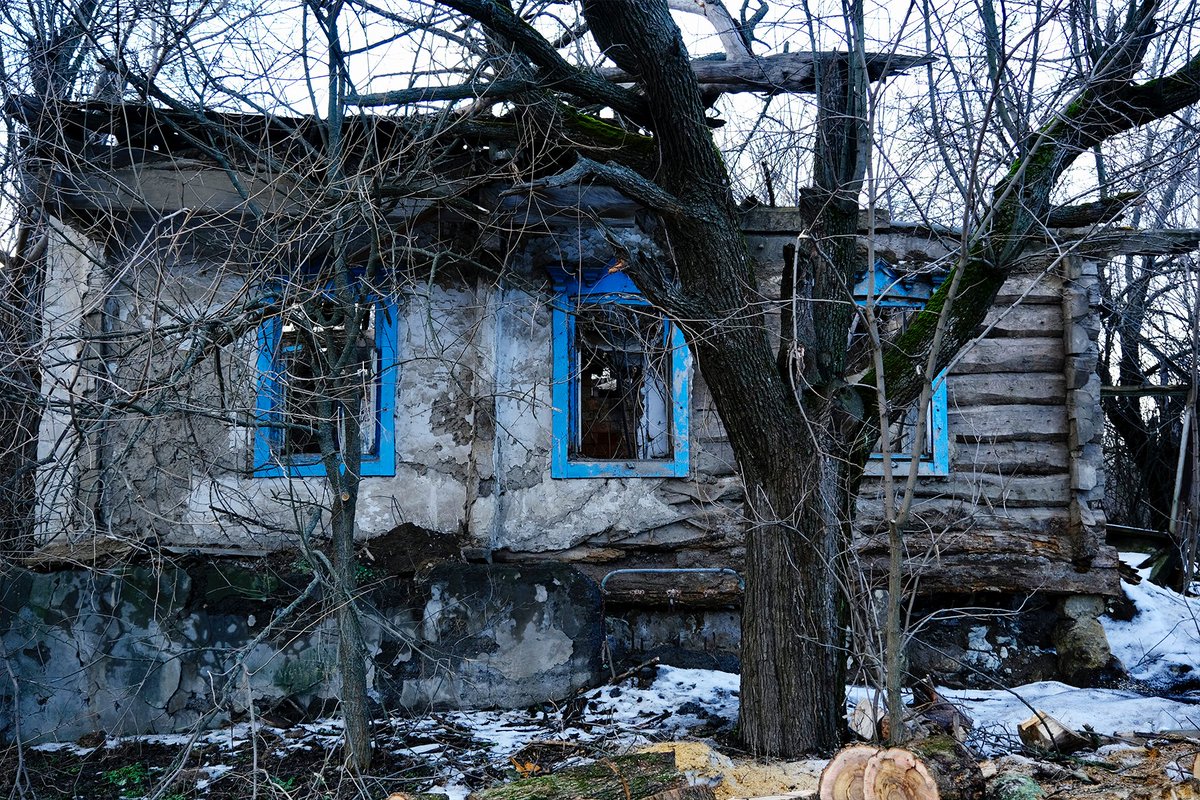
Our chief correspondent @RamsaySky has been in the town of Krymske, in eastern Ukraine, where conflict has been part of life since 2014.
Apart from the movement of soldiers, most of the streets are empty
Apart from the movement of soldiers, most of the streets are empty
For years, Ukraine has been at war with Russian-backed separatists.
The scars of the fighting litter the landscape, destroyed and abandoned homes are everywhere
The scars of the fighting litter the landscape, destroyed and abandoned homes are everywhere

The odd person can be seen walking with their shopping, but most stay inside.
Some may come to the door to chat with neighbours, like 72-year-old Olga Mihaylovna. She says she’s scared, but she isn’t leaving
Some may come to the door to chat with neighbours, like 72-year-old Olga Mihaylovna. She says she’s scared, but she isn’t leaving

The defensive trenches here are essentially to keep an eye on the movements of Russian-backed separatists – and more importantly any invasion by the Russian army 

The soldiers say in recent weeks there’s been more activity and more firing from the other side, especially at night.
There’s a real sense at this frontline that they’re waiting for some sort of breakthrough that could relieve the tension
There’s a real sense at this frontline that they’re waiting for some sort of breakthrough that could relieve the tension

As diplomatic moves and prime ministers meetings take place both in Ukraine and abroad, the fact is the two sides are stuck between the battle lines already drawn.
And for the people and soldiers, there’s nothing to suggest this will change
And for the people and soldiers, there’s nothing to suggest this will change

📺 Watch Sky News live on Sky 501, Virgin Media HD 602, Freeview 233 and YouTube.
📱 Download out app here: onelink.to/skynews
news.sky.com/story/russia-u…
📱 Download out app here: onelink.to/skynews
news.sky.com/story/russia-u…
Watch the full report 👇
• • •
Missing some Tweet in this thread? You can try to
force a refresh













